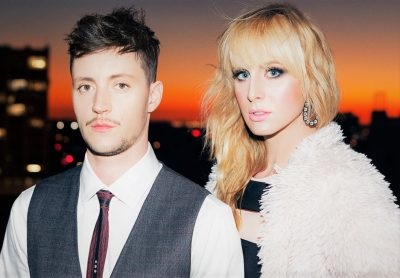User blogs
Identity plays a crucial role in a person’s life journey. A person’s identity also determines how society perceives them. And that is why it’s so difficult for transgender people to be able to work out even the most basic needs of life – dating, relationships and a job. It’s hard to imagine that even in the 21st century; society is so prejudiced against trans people. But that is unfortunately the sad reality.
A transgender person can’t even date someone the usual way. They have to go through a transgender dating site or a transsexual dating site. It’s literally impossible for a trans woman to attend a random party, strike a conversation with a random guy and tell him that she is trans. It is difficult to even imagine the kind of dangerous scenarios she could be exposed to if she does that sort of a thing. Transgender people are also vulnerable to cyberbullying and a host of online threats and abuses. Hence, many consider opting for a virtual private network and look for the best VPN service around.
So why is society so obsessed with making a transgender person’s life hell? What is their problem with a trans person? Well, it is their identity that society finds problematic because the desired and lived gender identity of a trans person is exactly opposite to their biological gender identity. That is, a trans person doesn’t identity with the gender they were assigned at the time of birth. And that is what society finds hard to accept.
Society is obsessed with a person’s biological gender identity which is the gender assigned to them at the time of birth. Since childhood, their respective gender identities are repeatedly reinforced in the minds of girls and boys. Girls are encouraged to keep their hair long, take interest in make-up and clothes, play girlie games and just generally behave girlie. Boys are encouraged to play outdoors and slowly develop body language and a lifestyle that is considered’ manly’. If anyone tries to challenge the conventional gender roles assigned to them and feel like they belong to the other gender, they are seen as a threat to the existing social order.
And that is precisely why society is so inhumane to transgender people. It views them as ‘transgressors. However, it’s not just trans people that society labels and judges. Those who identify themselves as genderqueer are also a victim of societal hatred and discrimination. These are people for whom gender is a fluid concept. They don’t identify with a particular gender. A genderqueer person kind of lives their own identity in between genders. They could also continuously switch between the two genders, according to their wish.
If you wish to date a transgender person through a transgender dating app or a transgender dating app, you need to understand a few basic characteristics of them. There are so many stereotypes surrounding trans people in society that it can be difficult to know how they actually are.
This article would list a few insightful points that would help you understand transgender identity from a holistic perspective.
Transgender People Are Not Necessarily Gay, Lesbian or Bisexual
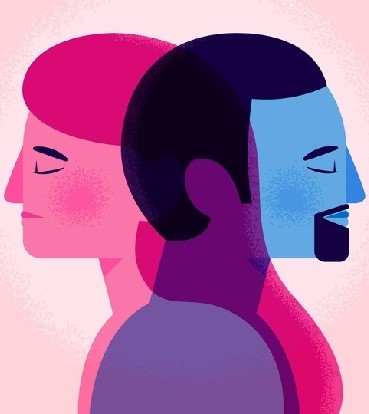 This is a common misconception that all transgender people are gay, lesbian or bisexual. Nothing can be farther from the truth. To begin with, the term transgender is strongly related to one’s gender identity, as opposed to sexual identity. When we use terms like gay and bisexual, these correspond more with the sexual identity of a person.
This is a common misconception that all transgender people are gay, lesbian or bisexual. Nothing can be farther from the truth. To begin with, the term transgender is strongly related to one’s gender identity, as opposed to sexual identity. When we use terms like gay and bisexual, these correspond more with the sexual identity of a person.
Secondly, transgender people strongly identify with one gender, either male or female. Many even undergo medical transitioning to develop the outward manifestations of that gender and be recognized in society as that gender. As a matter of fact, many transgender people want to date and have relationships the heterosexual way. That is a trans woman desires a man, just like a cis woman does. And a trans man would desire a woman, just like a cis man. So, it’s wrong to indiscriminately label trans people as gay, lesbian or bisexual. If you are a cis guy and you start chatting with a trans woman through a transgender dating app or a transsexual dating site, she obviously wants to date you just like any other woman would.
Transgender people are also not genderqueer. They strongly identify with a particular gender and then try to live their life, according to that gender. A genderqueer person, on the contrary, doesn’t believe in the concept of gender. They can live in between genders or switch from one gender to another, as and when they wish.
Transgender People Identify with a Gender Different from the One they were Assigned at Birth
This is a pretty basic point. But it’s important to emphasize because many people still don’t have a clear understanding of the gender identity crisis that trans folks undergo. Cis folks might think that the strong urge to change one’s gender is just a whimsical fetish. But in reality, the gender identity of trans people is a matter of life and death for them.
From a very early age, they begin to strongly identify with the opposite gender. They don’t find pleasure or happiness in activities that a typical person born with their gender would. Because of this, many transgender people also experience gender dysphoria at some point in their lives. If you go through a transgender blog or read about the experience of trans people on a transgender forum, then you would understand the kind of grave identity crisis they undergo.
Because of fear of society and other reasons, many still forcefully try to live their life according to the norms of their biological gender identity. But there comes a point when it gets too overwhelming and they can’t handle it anymore. That’s when they come out as a transgender person.
A Transgender Person Might or Might Not Undergo Medical Transitioning
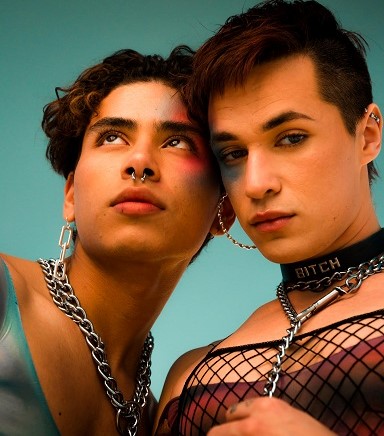 Many trans people decide to undergo medical transitioning in order to outwardly embrace their desired gender identity. That is, they want to have the physiological characteristics of the gender they identify with. The medical transitioning procedure helps them live in society freely and openly as the gender they identify with. It also helps them find a love interest or a partner. Transitioning is especially helpful for trans people who want to date within the normative framework of heterosexuality.
Many trans people decide to undergo medical transitioning in order to outwardly embrace their desired gender identity. That is, they want to have the physiological characteristics of the gender they identify with. The medical transitioning procedure helps them live in society freely and openly as the gender they identify with. It also helps them find a love interest or a partner. Transitioning is especially helpful for trans people who want to date within the normative framework of heterosexuality.
Having said that, many trans folks choose to skip transitioning altogether. They embrace their new gender by adopting the body language, dressing style and behavioural characteristics of that gender. It really is about the choice of the person concerned. Some feel just fine even without transitioning while others have this strong urge to physically be like the gender they identify with.
Medical transitioning is also an expensive procedure. Many trans folks can’t afford it. Besides, it is also very demanding physically, mentally and emotionally. Many transgender people lack the support of family or friends that they so need during the transition. Although things are changing now as many voluntary organizations are coming forward to help trans people with transitioning. Also in some countries, the state medical services can also provide for the transitioning procedure of a transgender person.
Trans People Contribute a Lot to the Society
Most people have this stereotype about trans people that they are some kinds of losers who portray themselves as victims all the time. This is crass, insensitive and totally unacceptable. But unfortunately, that’s how some in society perceive transgender people. If you read up about trans folks on the internet or just go through a transgender blog, you’ll come to know the kind of amazing contributions that trans people are making to society.
And they are not just trans rights’ activists. But transgender people can be increasingly seen in mainstream professions like doctors, engineers, police officers, academicians and even politicians.
There are many trans icons across the world in fields like entertainment, culture, art and literature. Trans activists are creating awareness not only on issues faced by their own community but they have also become a voice for the marginalized and under-represented in general.
Despite all these advances, prejudices against transgender people still remain deeply entrenched in society. There still are a number of clinicians who believe that gender non-conforming children can be set right through relevant interventions. That is, they should be encouraged to behave according to their traditional gender roles and this will eventually fix their ‘problem’.
The whole mindset of viewing the identity crisis of a transgender person as a ‘problem’ is just sad and it reflects the rather limited understanding of society on issues related to transgender people. There needs to be a larger social movement through which various trans issues find representation on a larger platform. There has to be greater emphasis on the fact that transgender people are not an object of journalistic enquiry. They are people, like any other and you need to connect with them at an individual level.
Those wanting to date a transgender person through a transgender dating app or a trans dating site need to understand that trans people have the same emotional needs as anyone else.
Committing the entirety of your life to a partner is something many people strive for, regardless of gender and orientation. While some might call it an outdated tradition, or criticize the patriarchal background that the custom carries, at the end of the day, marriage can also be a powerful step for a relationship.
For Felix and Helen Fenton, their wedding day was even more meaningful. Both of them are transgender - theirs is Britain’s first double sex swap wedding. Felix said: “This is the first day of the life I always wanted to lead – as the right love with the right person by my side.”
The Fentons’ shared their journey with the public to show that transgender dating is just as beautiful as any other love.
This inspired Maxwell and Janis, who used to be Ian, and found her soulmate in Maxwell, to ask the Fentons to be their best man and bridesmaid respectively. For Maxwell and Janis, their celebration was not a traditional marriage, but a renewal of their vows.
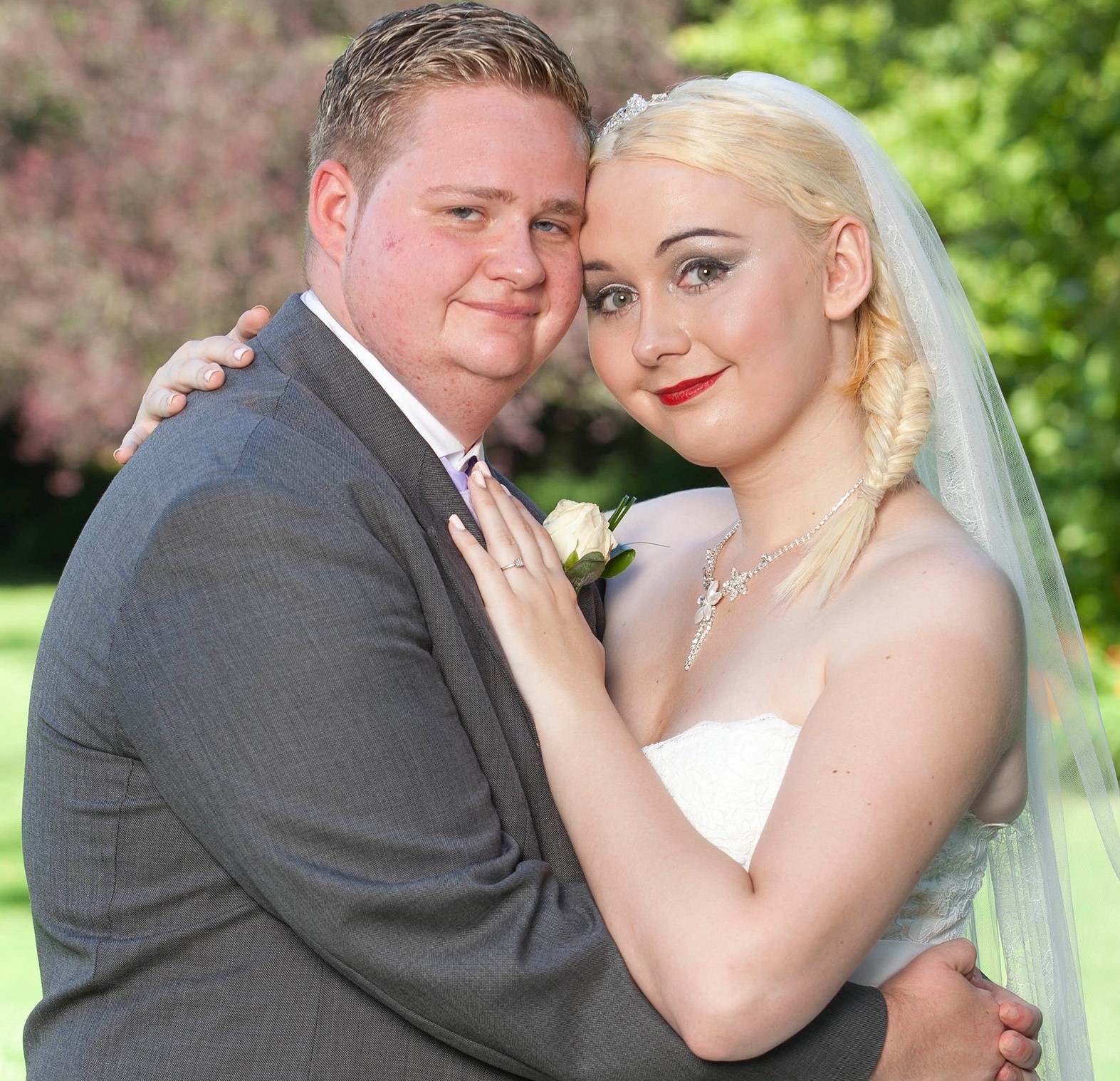 Jamie Eagle and Louis Davies are another double sex swap wedding who chose to broadcast their marriage: The 21-year-old bride, Jamie, was assigned male at birth, and the 26-year-old groom, Louis, was assigned female at birth. And given the struggles and the pain that often goes along with a transgender person’s journey towards their true identity, they kept wondering whether or not their big day would ever happen. When it finally was on the horizon, they received a chance to be featured on Sky Living’s “Forbidden Love” series.
Jamie Eagle and Louis Davies are another double sex swap wedding who chose to broadcast their marriage: The 21-year-old bride, Jamie, was assigned male at birth, and the 26-year-old groom, Louis, was assigned female at birth. And given the struggles and the pain that often goes along with a transgender person’s journey towards their true identity, they kept wondering whether or not their big day would ever happen. When it finally was on the horizon, they received a chance to be featured on Sky Living’s “Forbidden Love” series.
“We thought long and hard before agreeing to it, because life is difficult enough for us, without TV cameras encroaching into our daily lives and struggles,” admits Louis. “But in the end, that was our motive for going ahead. We want people to have a sense of what our lives are really like so that when they talk about transgender issues, they are more informed.” Sky Living’s finished documentation of the event offers an educational, insightful, and quite moving glimpse at Jamie Eagle and Louis Davies’ special day.
Their stories of finding love as well as their true gender identity are one of many.
Daliah Husu, for instance, who was born Luis Miguel Morris, married her husband Ruben Husu. Daliah was just four years old when she realized she was different from other boys – she loved dressing up as a lady. She said: “My aunt used to call me ‘little woman’. It was her way of saying: ‘It’s ok, there’s nothing wrong with it’.”
Britain’s highest-ranking and openly transgender soldier, Army Captain Hannah Winterbourne married her partner, actor Jake Graf, in 2018. Instead of giving presents, their guests donated to the wedding fund as well as the surgery fund to support Hannah’s journey.
Transgender celebrities also tie the knot: Transgender model Carmen Carrera and husband Adrian Torres feel truly blessed: “Honestly,” says Carrera, “knowing that I was going home a married woman gave me a sense of peace... This wedding has given us a sense of freedom to be proud of what we have and who we are. Celebrating our love and what we call our 'modern, modern family,' lets us know that we belong here and that we also have a place to raise a family of our own on our terms. We feel truly blessed."
Meanwhile, transgender icon Janet Mock and Aaron Tredwell had a dreamy Hawaiian wedding on the island of Oahu. "I struggled to imagine what my big day would look like,” admits Janet Mock, “because I'd never let myself believe I'd have one. I never imagined I'd be a bride.” To that, the photographer groom, who proposed to Mock after five years of dating, said, “I know she felt that way, and I say it's ridiculous. I'm the lucky one in this relationship. I'll be forever grateful that she chose me.”
As the examples of publicized weddings show, committing your life to your soulmate does not need to be a private affair. Several transgender brides and grooms have taken it upon themselves to wield the interest their transgender identities garner to further a political mission.
For instance, Russian trans woman Irina Shumilova and cisgender woman Alyona Fursova broke no laws when they married. The reason: Irina Shumilova wasn’t able to amend her legal documents, which still identify her as male, before their ceremony. However, their union did cause ripples with the proponents of the ‘gay propaganda’ law in Russia: The couple has used the not-yet updated document as a chance to officially register their relationship since, under the Family Code of Russia, marriage is “a voluntary consent of a man and a woman.”
In Havana, Ignacio Estrada and Wendy Iriepa, born as Alexis, joined their lives together in a simple civil ceremony on the same day as Fidel Castro's 85th birthday. They called the wedding a “gift” to the former leader. Then, they draped themselves in the rainbow flag of gay pride to ride through the streets of the city.
In Malta, transgender woman Joanne Cassar fought an eight-year legal battle for her right to marry, thus paving the way for herself and others. She eventually became Joanne Sciberras Edwards with her new husband Kurstin.
India saw its first transgender couple marry under the Special Marriage Act in May 2018. Surya and Ishaan K Shaan celebrated their big day with over 500 guests, including Ishaan’s father, mother, and sister.
Advice If You, Too, Want to Have a Transgender Wedding
Well, first and foremost, you will need to find the right partner. Yet thanks to transgender datings sites that connect you to thousands of potential dates all around the globe, this is easier nowadays than it used to be ever before.
If your goal is to enter a long-term or even life-long relationship, however, you need to be open and honest about this to avoid falling in love with someone who does not share your life’s dream of marriage.
Once you have found the perfect match and you are both ready to commit, here are a few aspects to consider if one or both of you are part of the transgender community:
— Beware of legal pitfalls: More and more countries and states have legalized same-sex marriages. So if you and your partner share the same gender after transitioning, you need to be aware of the legal circumstances in your country. If you are a male-female couple where one partner has transitioned, you might need to wait for name changes and gender changes to become official since you need a birth certificate to marry.
— Take care when choosing vendors and venues: As headlines in recent years have repeatedly shown, there are many businesses that do not wish to tell to the queer community. If you are a same-sex couple or a trans/genderqueer/nonbinary couple, there is a risk you will have to deal with bigoted attitudes. So choose vendors carefully. Ask around in your local community for recommendations. Ideally, you know other LGBTQIA+ couples who celebrated their weddings and will be able to help you.
— Consider what you share via social media: As instagramable as your wedding might be, keep in mind that the internet is home to a large number of narrow-minded people. If your ceremony includes transgender brides, grooms, or nonbinary partners, chances are you might attract harassment online. Be aware of this risk and talk through the implications with each other before you decide to share any photos or videos of your special day.
— Family troubles: Unfortunately, some family members might not approve of your union. This affects queer people and transgender couples alike. Not having one’s family at one’s wedding can hurt, and the affected partner will need considerable support even if the rift between them and their family members is not new. Yet be sure to talk about how best you can help your partner – not everyone appreciates someone coming in on a high horse and taking care of a situation. Only act when you know your partner wants you to.
— Cis partners require care, too: That said, let’s not ignore the fact that cisgender partners in a trans wedding will need support as well. While they may have spent a long time with their transgender partner and even been a powerful ally for the trans community, this does not always prepare them sufficiently to handle the added stress of a wedding. A cisgender partner might be embarrassed or even enraged by other people’s ignorance of transgender issues and concerns and thus have profound emotional reactions.
As different as some aspects of transgender weddings may be, they do not differ from any other wedding in this central truth: Both partners need care and support in the wedding planning process. While the actual day can be magical, the road that leads to this happy moment is often stressful and filled with challenges. That holds true for couples of all genders and orientations.
Remember the goal: committing yourself for life to the person you love. Focussing on the joyous outcome will help you both get through even the hardest and most difficult moments in your journey to marry.
Hormone Replacement Therapy:
All you need to know about Hormone Replacement Therapy. In our last videos, we covered how to start an MTF transition, and as we promised, in this video we will explain to you what is Hormone Therapy and what are the necessary requirements to undergo such a therapy.
Hormone replacement therapy (HRT), otherwise called menopausal hormone therapy (MHT) or postmenopausal hormone therapy (PHT, PMHT), is a type of hormone therapy which is utilized to treat side effects related with menopause in women. These side effects can incorporate hot flashes, vaginal decay and dryness, and bone misfortune, among others, and are caused by lessened levels of intercoursehormones in the menopausal period. The primary hormonal solutions utilized in HRT for menopausal indications are estrogens and progestogens. A progestogen is typically utilized in the mix with an estrogen in ladies with flawless uteruses in light of the fact that unopposed estrogen treatment is related to endometrial hyperplasia and growth and progestogens keep these dangers.
The 2002 Women's Health Initiative (WHI) of the National Institutes of Health (NIH) found dissimilar outcomes for all reason mortality with HRT, observing it to bring down when HRT was started before, between age 50 to 59, yet higher when started after age 60. In more established patients, there was an expanded frequency of heart attacks, and stroke, and breast cancer although a reduced incidence of colorectal cancer and bone fracture and bone fracture. Some of the WHI discoveries were again found in a bigger national investigation done in the UK, known as the Million Women Study (MWS). Because of these discoveries, the number of ladies taking HRT dropped precipitously. The WHI prescribed that ladies with non-careful menopause take the most reduced plausible dosage of HRT for the briefest conceivable time to limit related dangers.
Isis King is an American actress, fashion designer, and top model. Isis was assigned male gender at birth. However, she has stated that individuals may allude to her as transgender. She was the first transgender female to content on the show and became one of the most visible trans individuals on TV.
Isis King had been runway modeling for a long time before partaking in America's Next Top Model. Isis is one of a small but growing number of transgender people and characters in film and television, and her inclusion on America's Next Top Model has been called an "unprecedented opportunity" by Neil Giuliano, president of Gay and Lesbian Alliance Against Defamation. By contending on the show, she has focused on national and prime time issues of sensual orientation changing and intercourse expression.
New York magazine noted that King is one of few transgender models in history to rise to public prominence, comparing her to Teri Toye, former club kid Amanda Lepore, and the gender-bending club promoter and model Andre J. Isis King is a practicing Christian and attends Mosaic Church in Los Angeles.
Relationship partners of transgender-identified individuals have distinctive couple-related experiences that are important to understanding. The “Organizational Diversity” field concentrates studies on the experiences of groups that are different from the archetypal male, white, heterosexual, cisgender, able-bodied and western worker. When analyzing the studies regarding gender relations, however, one perceives their concentration on the dynamics between men and women localized in developed western countries. Transgender persons are persons whose identity and/or gender expression differs from what is socially attributed to their bodies, breaking with the heteronormative logic.
In Brazil, where only the bodies within this discourse are legitimate, this group is systematically excluded from a myriad of spaces including the formal job market. Therefore, the experiences of these people at and with work are invisible to organizational diversity's theory and practice.
To explore this issue, this study analyses the perceptions that the transgender person maintains about their relations:
1. With their professional history
2. With other people in their work environment
3. With organizational policies and practices.
Face-to-face semi-structured interviews were made with six transgender persons that work in organizations. From these narratives, it was found that the person's level of passing usually influences their relations and that the ignorance regarding transgender permeates all three domains of relations.
The Conclusions are:
1. The relations with work are marked by opportunity restrictions
2. The relations in the job hold the person responsible for their own intelligibility and safety
3. The relations with the organization vary according to the way it faces transgenderism and its own voice systems.
Transgenders are “people whose gender identity is different from their assigned gender at birth”. Individuals who identify themselves as transgender usually seek gender reassignment treatments, which may or may not include gender reassignment surgery. Transgender women (or trans women) are people whose body is read as male and whose gender identity is a woman. They usually go through treatments to acquire characteristics typical of the female gender and adopt names, clothes, and mannerisms seen as female. A transgender man (or trans man), in turn, is one whose body is read as female and whose gender identity is a man. They seek to acquire characteristics that are typical of the male gender and use names, clothes, and mannerisms seen as male. When considering their choice of work and hiring and admission processes, the word employed most often by respondents is if they are passable, the degree to which others take a transgender person as cisgender.
In practice, the higher a transgender person is passable, the less likely they are to suffer transphobia: if one's gender expression allows them to be seen by others as cisgender, they will not be subject to the prejudice and discrimination aimed at transgender people, increasing their chances of entering and remaining in the formal labor market. Two aspects affect them being passable: one's name and one's appearance. The ignorance regarding transgender people not only permeates the relations transgender people keep with others in their work environment, but also with the organization itself. The result is that trans phobia creates and maintains difficulties for transgender people in entering and remaining in the formal labor market.
The moment you call a trans woman a MTF trans woman, the prejudices have somehow already set in. Some transgender women might be offended on being called MTF. That kind of address can give the impression that there is something not quite normal about their identity, that despite being a woman, their identity is deviant in some ways.
A MTF trans woman is a lady who was born with the male biological gender. That is, her body had physical and biological characteristics of a man so she was assigned masculine gender at the time of birth. However, she identifies herself as a female. She had the eerie feeling of being trapped in a male body for a long, a feeling that gave her a lot of anxiety and discomfort. She battled this on a daily basis till she finally decided to come out as a woman. And once she begins to come out as a woman, she might choose to undergo certain medical procedures to develop the outward appearance of the female gender.
Having said that, it is not easy to be a MTF trans woman in this society. Although things are way better than let’s say 20 years ago, they are still far from best. People now perhaps recognize the right of transgender people to live a normal life but accepting them is a different issue altogether. It is still difficult for trans people to find regular jobs. If they are in college or university, completing their education becomes a challenge for them.
A transgender woman goes through a lot of societal challenges once she comes out in the open. But as they say, every cloud has a silver lining. These challenges can definitely get her on the verge of a breakdown. But with her characteristic courage, determination and confidence, she can overcome these challenges.
This article tells you about the main challenges faced by a trans woman and how to overcome these.
Struggle with Identity
 A trans woman goes through an acute identity crisis for a long time. For every courageous person who has come out as a transgender lady in the public, there is a rather painful background story. She undergoes the most harrowing of identity crisis while growing up. The society judges her by the identity that is assigned at the time of birth. She has the biological characteristics of a man so she is expected to behave like a boy. She is supposed to adopt the typical mannerisms of a guy and socialize in a male pattern as she grows up. But all this gives her enormous distress. She feels like she is trapped in a wrong body and there is no one she can communicate this with. The parents come from the same society so even they might dismiss what she feels and just ask her to conform.
A trans woman goes through an acute identity crisis for a long time. For every courageous person who has come out as a transgender lady in the public, there is a rather painful background story. She undergoes the most harrowing of identity crisis while growing up. The society judges her by the identity that is assigned at the time of birth. She has the biological characteristics of a man so she is expected to behave like a boy. She is supposed to adopt the typical mannerisms of a guy and socialize in a male pattern as she grows up. But all this gives her enormous distress. She feels like she is trapped in a wrong body and there is no one she can communicate this with. The parents come from the same society so even they might dismiss what she feels and just ask her to conform.
And that is the worst kind of struggle anyone can face. To have people tell you in your face that what you feel so deeply and truly is abnormal, nothing can be more painful than that. This identity crisis often gives rise to gender dysphoria.
All this can be really traumatizing and scary because if you are an adolescent, you can’t even take steps to undergo medical transitioning because you don’t have the finances plus you can’t take such decisions for yourself. That’s why many transgender people come out in the open later in life.
But you don’t have to let this identity crisis mark your life. If you feel like a woman trapped in a male body, speak to your family about it. They might dismiss you at first but if you persist, they will understand you and help you in your journey. If your family is hostile, confide in a friend whom you think understands you. In the meantime, you could get valuable information from a transgender forum and learn from other trans people's experiences. If it gets worse, you could seek help from any of the organizations working for the rights of transgender people. There are many such organizations active these days. A simple Google search will help you figure out how you can get help from one of these.
Struggle to Find Love
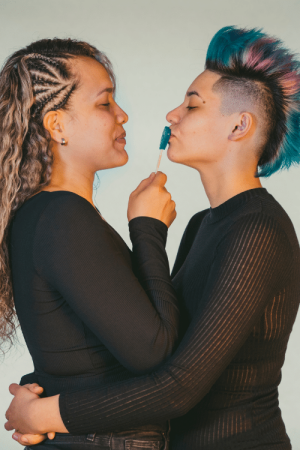 This is the common struggle many transgender women face. Once they come out in the open, the next challenge is to find love. Societal apathy makes it next to impossible for a trans woman to seek a partner the way a cis woman does. She can’t just walk into a party and strike a conversation with a guy she finds interesting. The guy might just turn hostile and even abusive the moment she reveals her identity, for all she knows.
This is the common struggle many transgender women face. Once they come out in the open, the next challenge is to find love. Societal apathy makes it next to impossible for a trans woman to seek a partner the way a cis woman does. She can’t just walk into a party and strike a conversation with a guy she finds interesting. The guy might just turn hostile and even abusive the moment she reveals her identity, for all she knows.
So the best bet for a transgender female looking for love is to join a transgender dating site. These days there are many dating sites specially designed for the transgender community. These sites are relatively safer s compared to conventional dating sites. Also on these sites, the person you are talking to more or less knows that you are a transgender woman. In a conventional dating site, there is always that added risk of someone not knowing your identity even if you’ve categorically stated that you are trans.
A trans dating site also gives you the flexibility of communicating with different kinds of people from across the world. Your choices are not limited. If you were dating someone through family or friends, then you would have a limited pool of people to choose from. So this is an added advantage with online dating. Also, there is no pressure to really meet anyone. That’s the best part. You can go on chatting with different people for a long time till you finally decide to go on a date. And if you still feel uncomfortable about meeting someone, you don’t have to. There is no compulsion.
Finding love as a trans woman is definitely not easy but it’s very much possible. It takes all sorts to make this world. There are many wonderful guys out there. Meeting the right one at the right time is all about destiny.
Struggle with Work and Education
Most transgender people undergo some kind of struggle with work and education. This struggle is more acute in countries where the laws are mostly directed against transgender people. But even in countries where the law recognizes their rights, trans people face this problem.
For a trans woman, completing her education or keeping a job is a major challenge. That is why many transgender women keep on delaying medical procedures because they are scared of losing on education or work. There are many transgender women who are forced to lead double lives. They have to hide their identity at the workplace. They are forced to live out their real identity only in private or with close friends. That’s why it’s no surprise that many trans women just quit their jobs.
For a MTF transgender woman with no savings or little financial means, this can be a source of acute distress. Everyone has the right to earn their livelihood. But in case of trans people, even if the company doesn’t directly discriminate against them, there is so much apathy and transphobia at the workplace that they end up quitting anyway.
For a MTF trans woman trying to live a normal life post-medical treatment, all this can be very complicated. Even if she legally gets assigned the female gender after the gender reassignment surgery, she still faces problems.
The only way to address this is by creating more and more awareness around issues faced by the transgender community. Many people don’t even know what is exactly meant by the term trans. They probably confuse trans people with gays and lesbians. So firstly, a massive social movement is needed to educated people about the meaning and implications of the term transgender. Laws alone cannot bring changes. It’ only when cis people in schools, colleges and workplaces will become champions of transgender rights that things will begin to change for good.
Struggle with Conventional Notions of Femininity
This is a typical struggle that a trans woman undergoes. She has the pressure to conform to the conventional standards of femininity. Just feeling like a woman isn’t enough. She has to make sure that her dress, appearance, behaviour simulate that of a cis woman. She attends grooming classes, learns the art of applying makeup, and takes voice lessons to make her voice sound more feminine.
Somewhere, a trans woman has to find her own ground. She has to create her own distinct style and aura. Even all cis women are not the same. Some cis women are ultra-feminine whereas others are more tomboyish and carefree. So there is no sure shot manual to being a woman really. A transgender woman should feel free to embrace femininity in her own unique style. She should not get bogged down by the whole conventional baggage of femininity. Her essence is that of a beautiful woman. And her outward being should reflect that in its distinctive aura.
